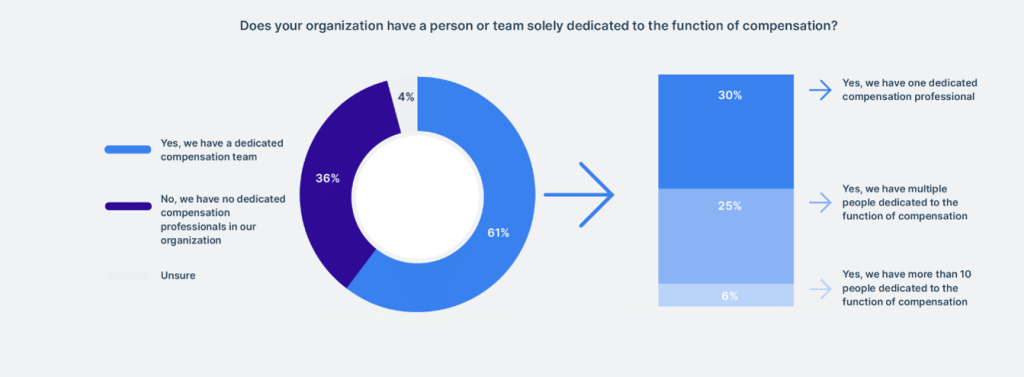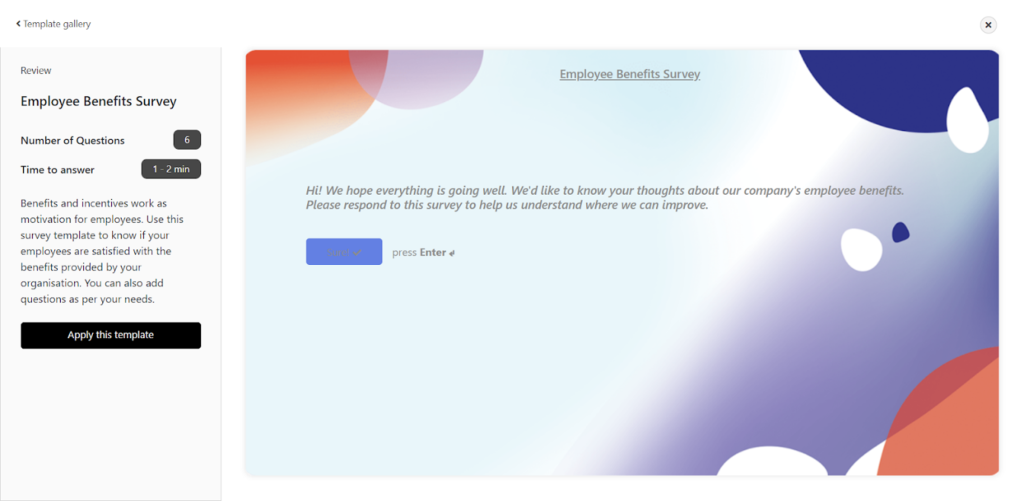
Employees are the biggest and the most significant asset of any organization. How you compensate your most significant asset can directly impact your company’s performance.
And how do you decide upon that? The answer is salary survey.
A high-quality compensation survey can attract and retain the best talents in the industry. They can also provide you with benchmarks that you can use to compare salaries and benefits.
But is a salary survey worth it? How do you use it? And how can you buy one for your business?
This blog will help answer these questions for you. So without wasting a minute, let’s jump right into it.
What Is A Salary Survey?
A salary survey, aka market survey, is used to determine and analyze the compensation levels paid to employees in one or more jobs. Its primary purpose is to provide average salaries for the benchmark positions. This data might include employee wages, bonuses, and benefits.
Professional organizations, industry associations, or independent research firms conduct salary surveys. These surveys are organized based on location or region, industry, company size, and other factors.
The salary survey data is then analyzed and compiled into a report that provides insights into industry compensation trends, benchmarks, and market competitiveness.
Importance of a Salary Survey
A standard salary survey reveals what other organizations pay for certain positions or job categories. Thus, making it a valuable asset for organizations and businesses that often pay for survey results.
That being said, here are some ways that prove how crucial salary surveys are to businesses:
- Help with job offers and negotiations.
Salary surveys provide valuable information on the compensation and benefits offered by competitors. Which, in turn, helps businesses make informed decisions about their job offers and negotiations.
By using salary survey data, employers can attract and retain top talents by offering them competitive salaries.
- Aid in retention efforts.
A salary survey will help you retain the top talents in the industry.
Employers can identify and address compensation gaps by analyzing salary survey data. It can include adjusting salaries, offering bonuses, or improving benefits packages.
- Provide insights into industry trends and market competition.
Salary surveys provide valuable insights into industry compensation trends and market competition.
This data can help businesses stay competitive and make informed decisions regarding employee satisfaction. They help ensure fair and competitive compensation practices. Businesses can use salary survey data to ensure their fair and competitive compensation practices. Which helps improve employee morale and reduce turnover rates.
- Help with workforce planning and budgeting.
Salary survey data can also help businesses with workforce planning and budgeting. By understanding compensation trends, companies can better plan for staffing needs and budget for employee compensation.
Also Read: The Art of Employee Appreciation. Types of Salary Survey Data
A salary survey can provide you with measurable data like:
- Base salary
- Salary increment
- Salary ranges
- Initial salary
- Incentives/Bonuses
- Working hours
- Assignments
n addition to the above data, a salary survey report can also provide you with the following unmeasurable data:
- Educational qualifications
- Geographic locations
- Hiring references
- Working conditions
Characteristics of Survey Data
As a rule of thumb, a quality salary survey should contain a list of participating companies and businesses. These companies and businesses should be thoroughly evaluated to ensure everyone in the market is appropriately represented.
Here’s a list of characteristics that makes up a good salary survey:
- Comprehensiveness: The survey data should cover various positions and industries to provide a broad perspective on compensation trends.
- Accuracy: The salary survey data should be collected using reliable methods and accurately reflect the industry’s compensation and benefits practices.
- Relevancy: The data should be relevant to the industry and geographic region studied.
- Freshness: The salary survey report should be up-to-date to provide accurate insights into the current compensation trends.
ALSO READ: Employee Evaluation: A Step-by-Step Guide Pros and Cons of a Salary Survey
Just because a tool is highly sought after in the industry does not mean it is perfect.
The same applies to a salary survey. Read on to understand its advantages and disadvantages to make the most out of it.
Pros:
- Helps businesses stay competitive in their industry.
- Provides insights into industry compensation trends and market competitiveness.
- Allows companies to make informed decisions about compensation and benefits.
- Can indirectly improve employee morale and reduce turnover rates.
Cons:
- It can be expensive and time-consuming to collect.
- The data might not be specific enough to a particular industry or geographic region.
- The data might contain inaccuracies due to the self-reported nature of survey responses.
Having read the pros and cons of salary survey questions, let’s look at some examples.
ALSO READ: Focus on Mental Health Awareness in the Workplace Examples Of Salary Specific Survey Questions
Gathering faultless data requires you to ask precise questions to the right audience. Great survey questions provide objective data, whereas flawed survey questions emanate bias, thus affecting the data.
Here are some great questions you can start using in your salary surveys:
- Do you have any relevant experience?
- What is your highest level of education?
- What is the minimum level of education the position you hold requires?
- How much do you earn on a gross annual basis?
- Personal opinion: Is your salary competitive?
- How often do you get a raise?
- Do you have any insurance?
- Do you receive any incentives?
- Are you aware of the salary policies of your company?
- Do you receive any other benefits from your organization?
ALSO READ: Top Income Survey Questions for 2023 Conclusion
A salary survey is a critical tool business can use to remain competitive.
You can also use this method to attract and retain top talent and make informed decisions about compensation and benefits. Using survey data will allow you to do all these things and more.
Use the information provided to decide whether purchasing a salary survey report fits your business best.
And, if you decide to run a custom survey, ensure you have the right partner like SurveyPoint in your corner.
With this tool, you can simplify your survey collection efforts and collect data more efficiently. Don’t just take our word for it; try it for yourself.
Interested In Sending Your Own Surveys?
Explore our solutions that help researchers collect accurate insights, boost ROI, and retain respondents using pre-built templates that don’t require coding.






